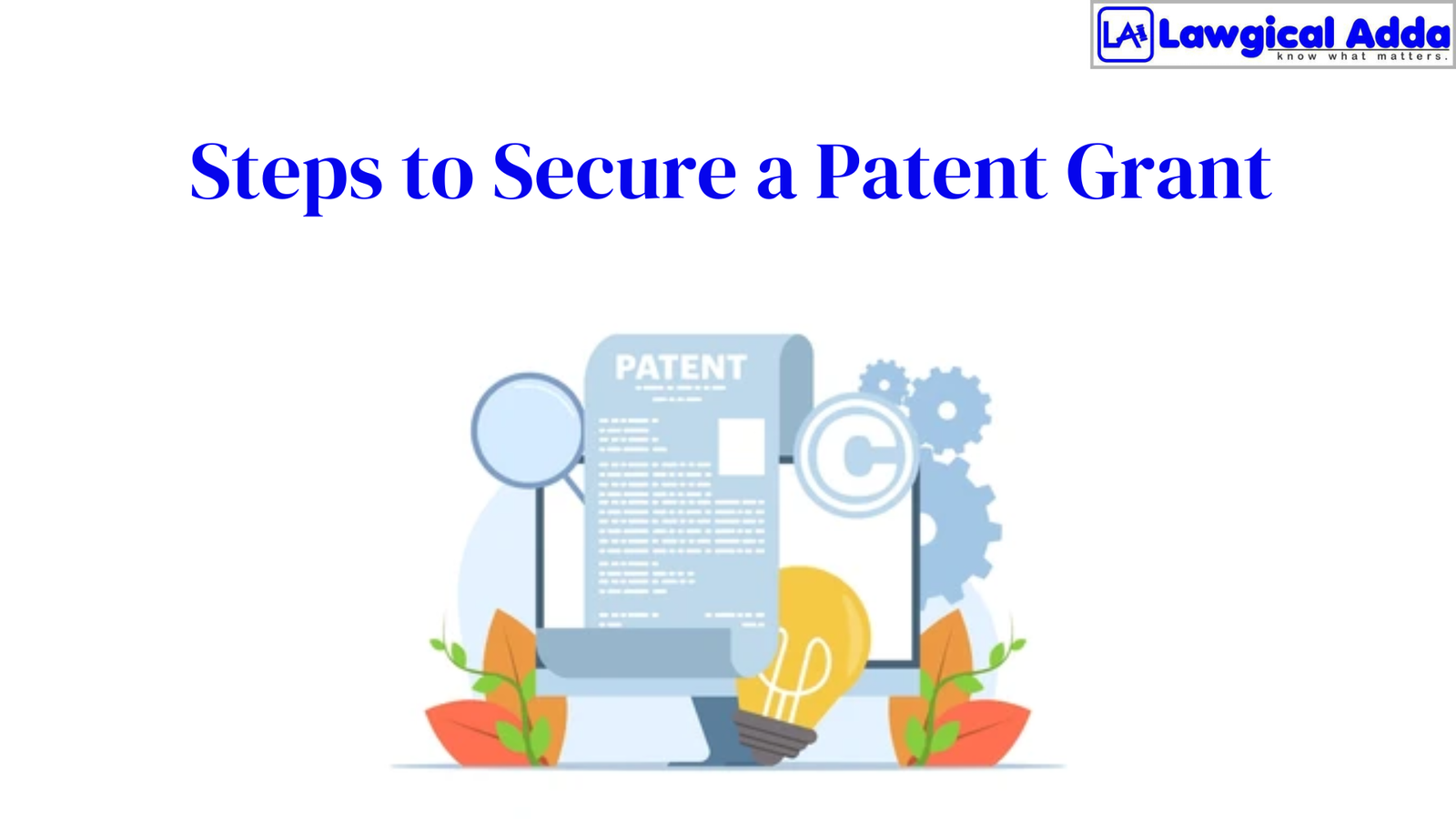Steps to Secure a Patent Grant

Table of Contents
Introduction
The Indian Patent Act stipulates that an individual may only file for and be granted a patent if the invention is a novel product or innovative process that can be produced or used in a particular sector
A specific method for acquiring a patent in India must be followed to have your innovation patented. The blog post below describes the steps in filing for a patent, including eligibility, types, paperwork needed, advantages, and associated expenses.
Procedure for Grant of Patent
Step 1: Search for patentability
Investigating patentability might help identify relevant prior art that may raise issues if your patent application is granted. A thorough patent search is advised before submitting a patent application.
The patent search is a crucial step in the process, as it helps you identify anything significantly comparable to your idea.
This aids in your decision regarding whether or not to move forward with the patent application. If the patent search results in a negative opinion, it saves much money and time that would have been required to apply and finally have it dismissed.
Step 2: Drafting a patent
It is among the most crucial phases of the patent application procedure. A patent draft is a techno-legal document that defines an invention’s meaning and extent. The quality of the patent draft directly affects the strength and quality of the patent.
Therefore, investing a significant amount of time and energy in this phase is advised to guarantee that the highest-caliber patent draft is submitted to the patent office.
Step 3: Patent filing in India
The next step is to apply to the patent office when the customer has written and approved the patent. Depending on the invention’s status, a complete or provisional patent application may be prepared and filed.
When the patent office successfully processes the money, an application number is issued upon completion of the filing.
Step 4: The patent application is published
Typically, patent applications are published eighteen months following the initial filing date. There is no need for an extra request because this is an automatic stage in the process.
You can submit a request for early publication (Form 9) to the patent office to have your patent application published earlier than 18 months. Usually, a request for early publication is granted within one month of the request being submitted.
Step 5: Review of the application for a patent
Patent examination is the process of evaluating an invention that will be patented for novelty and inventive steps. The applicant must ensure that their application is reviewed; the patent application examination does not happen on autopilot.
The applicant must submit a “Request for Examination” (Form 18) to the patent office to request that the application be examined. The request must be submitted within 48 months of the earlier filing date (or priority date, whichever is earlier).
The patent application will be reviewed as soon as the request for examination is submitted. To determine whether the patent application is submitted for a new and inventive invention, the examiner will perform a patentability search to hunt for comparable technologies during the examination.
The examiner will additionally include a summary of any additional concerns, such as patentable subject matter, from the patent law perspective. After the examination, the examiner will provide a First Examination Report (FER). Within six months, the applicant must reply to the initial examination report.
Step 6: The final grant decision for the patent
The patent office will make a final determination regarding the patent after reviewing the application and determining whether it is approved, denied, or approved with specific modifications.
Step 7: Patent renewal
In India, a patent can be operative for a maximum of 20 years after it is awarded. To maintain its validity, you must file a patent renewal for each year you plan to keep your application active.
Due to the systematic and scheduled nature of the patent application process, deadlines must be met to prevent issues. To make obtaining a patent more straightforward, one can always seek advice and assistance from a patent attorney.
Our IPR professionals are here to help if you need it! We will provide a free consultation to walk you through the procedure. Secure your intellectual property with Lawgical Adda. Whether it’s Trademark Registration, Patent Registration, Design Registration, or handling Trademark Opposition, we’ve got you covered.
To ensure no inconsistencies are discovered during the processing step, we will also assist you in precisely drafting the patent specification and the registration application.
Let us guide you through the process—contact us today to protect your innovations. Reach out to Lawgical Adda for expert guidance. Contact us today!







